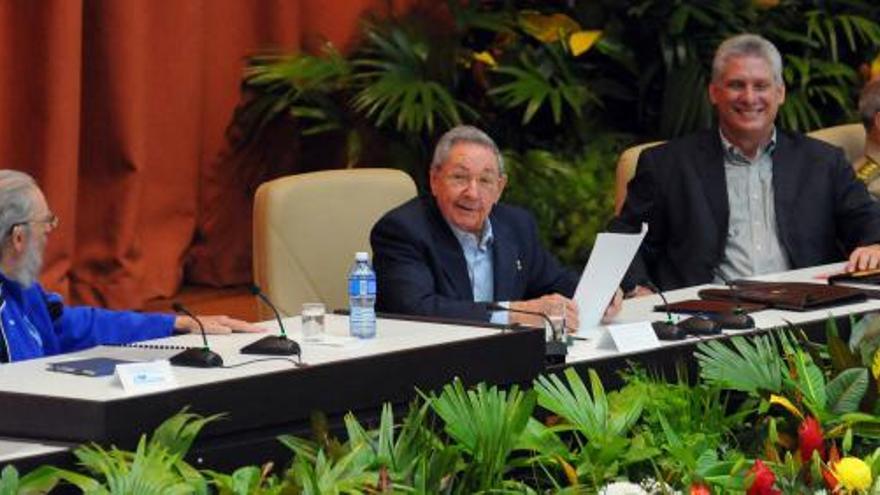
![]() 14ymedio, Havana, 6 April 2022 — This Tuesday marks 13 years since Fidel Castro wrote – from the forced retirement of his illness – one of his famous “Reflections” in which he called for dialogue with the United States. Miguel Díaz-Canel recovered, for the anniversary, a phrase from that text that has been interpreted as a call for dialogue with Washington.
14ymedio, Havana, 6 April 2022 — This Tuesday marks 13 years since Fidel Castro wrote – from the forced retirement of his illness – one of his famous “Reflections” in which he called for dialogue with the United States. Miguel Díaz-Canel recovered, for the anniversary, a phrase from that text that has been interpreted as a call for dialogue with Washington.
“It is not necessary to emphasize what Cuba has always said: we are not afraid of dialoguing with the United States. We do not need confrontation to exist either, as some fools think; we exist… because we believe in our ideas and we have never been afraid of dialoguing with the adversary.” The president wrote on his Twitter account.
Castro was responding at that time to a proposal from then-Senator Richard G. Lugar who urged Barack Obama, then US president, to begin negotiations that would bring about a thaw in relations between the two countries.
The leader of the Revolution pointed out: “The senator from Indiana walks with his feet on the ground. He does not start from philanthropic positions. He works (…) with the United States Chamber of Commerce and other business groups, other state governments and human rights groups,“ he said, in line with an article by Lugar in The Washington Post asking for an understanding between both nations.
Castro added: “I am sure that Richard G. Lugar does not fear the nonsense of being described as soft or pro-socialist.” Finally, the announcement of a certain recovery in relations finally took place in 2014, although it began to take shape some time ago.
Díaz-Canel’s intention to be open to dialogue in this case is more like crying out in the desert. Although the Cuban regime had hoped that a Democratic administration in the US would be more favorable than the Republican one of Donald Trump, who reversed some thaw agreements and imposed new sanctions, the illusion is fading like a sugar cube.
Both Biden and his vice president, Kamala Harris, promised during the campaign to review some of the policies applied by their predecessor in office, such as the recovery of functions of the embassy in Havana and regarding the sending of remittances and travel.
However, once installed in the White House, the messages were directed more towards delaying that review. There was no rush in Washington when other, less controversial issues seemed more urgent to many potential voters in Florida.
Faced with the attitude of the Cuban regime after the anti-government protests of July 11, from which it imprisoned more than a thousand people and has sentenced them to prison terms of up to 30 years in some cases, the Biden Administration began to back down, stating that “circumstances changed.”
According to the Cuban Attorney General’s Office, 790 people have been prosecuted in the country for the July 11 protests, of which 55 are between 16 and 17 years old.
In the midst of a world storm that moves between the war in Ukraine and the economic problems that it will entail, with runaway inflation and lack of energy and food, Cuba may be the least of Joe Biden’s worries.
____________
COLLABORATE WITH OUR WORK: The 14ymedio team is committed to practicing serious journalism that reflects Cuba’s reality in all its depth. Thank you for joining us on this long journey. We invite you to continue supporting us by becoming a member of 14ymedio now. Together we can continue transforming journalism in Cuba.
